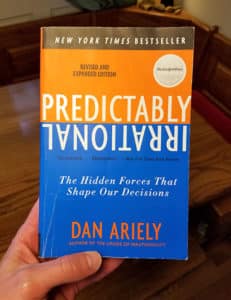
Scott: I want to talk about some of the other biases that are talked about. So, there are applications that can help you with that and I’ve been using that with a lot of success. We all know we shouldn’t be wasting time if we’re trying to study or work but we all do it. This occurred through observation I was looking at how I was wasting time and how much more productive I am after not using those sites.Īfter implementing these restrictions on myself I find my productivity is much better and I’ve been doing it for years now. Now, this is a restriction I’ve set for myself. It starts at 8:00am and it ends at 5:00pm and during that time all the social media sites and all the time wasting sites are all blocked. In my experience, when it comes to productivity, I use applications on my computer that block electricity. That can lead to a feeling of like someone is trying to get you to do something.

Vat: Just before I talk about my own experience, I remember, a book I was reading about psychology and they were saying that putting restrictions are self-imposed they are much more effective because you’re the one who set the limits, you feel more responsible and in control when you set your own restrictions as opposed to someone else telling you what to do. You are somewhat interesting in our group of friends because you have a lot of self-imposed constraints that a lot of others would be like, why are you doing that!? But they are really effective so maybe you can talk about your own experience with that. I wanted to talk about this in the context of what you do, Vat. In this chapter he talked about one of the deviations from rationality is that if you give people more constraints, in particular you give them the ability to hinder their own progress, in they might actually do better. Scott: The first I want to talk about which I thought was very interesting is something that you have deliberately designed your environment to try to overcome is the one on self-control and procrastination.

…some tactics for self-imposed restrictions… If you would rather read the full transcript, click here. They’re systematic and predictable-making us predictably irrational. Yet these misguided behaviors are neither random nor senseless. From drinking coffee to losing weight, from buying a car to choosing a romantic partner, we consistently overpay, underestimate, and procrastinate. In this newly revised and expanded edition of the groundbreaking New York Times bestseller, Dan Ariely refutes the common assumption that we behave in fundamentally rational ways. Vat Jaiswal and I discuss Predictably Irrational by Dan Ariely.


 0 kommentar(er)
0 kommentar(er)
